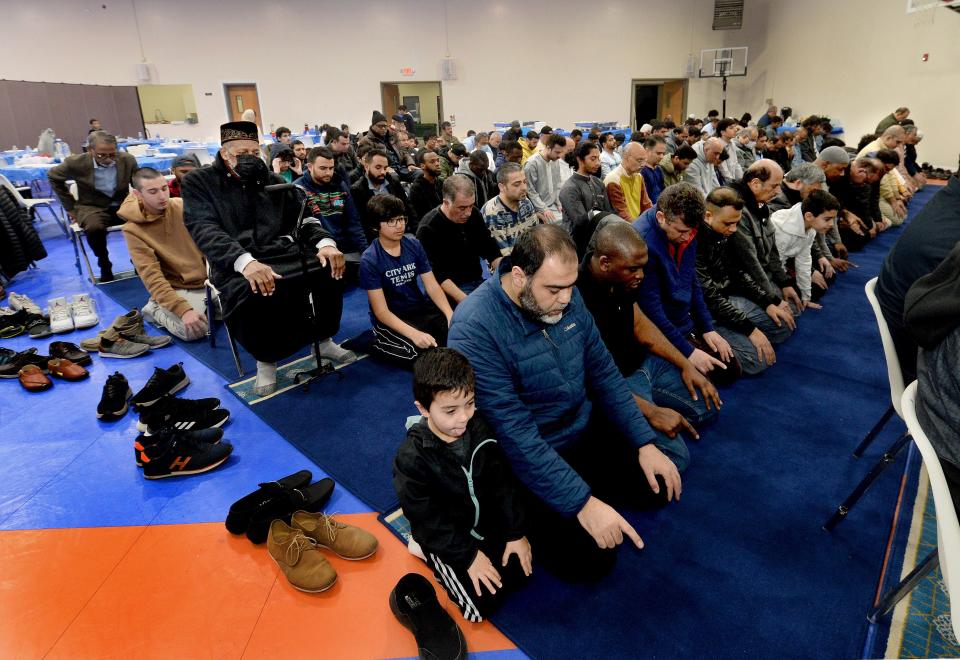Passover begins April 22. Here's everything you need to know about the 8-day celebration
It is a busy time for a wide range of religious events.
Muslims just ended the holy month of Ramadan with the celebration of Eid al-Fitr, a celebratory holiday in the Islamic faith.
For the Jewish community, Passover is on the horizon as is Easter for Eastern Orthodox Christians.
Here is what to know.
More: Group eyes demolition of former Springfield Pillsbury Mill site. Here's what's next.
When is Passover?
Passover, or Pesach in Hebrew, starts before sundown on April 22, concluding after nightfall on April 30. Many Jewish communities host seders the first two nights of the holiday.

What does Passover commemorate?
Passover commemorates the Israelites’ exodus from Egypt as told in the Torah, or the first five books of the Old Testament.
The name "Passover" comes from the Israelites marking the doors of their homes with lamb's blood so an avenging angel, sent by God, would know to pass over them.
Why Jews can't eat bread during Passover
During Passover, Jews are forbidden to eat bread or bread products. Instead, they eat unleavened flatbread, called "matzo."
According to History.com, the fleeing Israelites left their bondage in Egypt in such a hurry that they didn’t even wait for their bread dough to rise.
Other Passover traditions
The seder plate holds symbolic foods, including bitter herbs, representing the bitterness of slavery, and, on the other end, charoset, a sweet salad of apples, nuts, wine, and cinnamon that represents the mortar used by the Hebrew slaves to make bricks.
There are readings from the Haggadah, the Jewish text recalling the Passover story. Traditionally at the seder, the youngest person at the seder asks the Four Questions, providing the framework for "why this night is different from all other nights."
When is Eastern Orthodox Easter?
Orthodox Easter, or Pascha, is celebrated May 5.
Orthodox Christianity still uses the Julian calendar, not the Gregorian calendar, to determine the Easter date. This year marks the furthest — five weeks —that Orthodox Easter and Western Easter (March 31) can be apart, though sometimes it falls on a common date.
Pascha always falls after Passover because the crucifixion and resurrection of Christ took place after he entered Jerusalem to celebrate Passover, according to the New Testament.
Orthodox Easter traditions
At Orthodox Christian Easter dinners, there is a tradition of red-dyed hard-boiled eggs, which are symbolic of the blood of Christ.
It is customary forOrthodox Christians to greet one another during the Easter season with the phrase, "Christ is Risen." The response is "Truly, he is risen."
Marking the end of Ramadan
Ramadan, the month which Muslims believe that God revealed the Quran to the Prophet Muhammad, was marked by increased worship, deeds of charity and prayer. It is also a time when devout Muslims fast daily from dawn to sunset.

Eid al-Fitr means the festival of breaking the fast.
Muslims mark the occasion by visiting families and buying new clothes.
Contact Steven Spearie: 217-622-1788; sspearie@sj-r.com; X, twitter.com/@StevenSpearie.
This article originally appeared on State Journal-Register: The eight-day celebration of Passover begins for Jews on April 22

